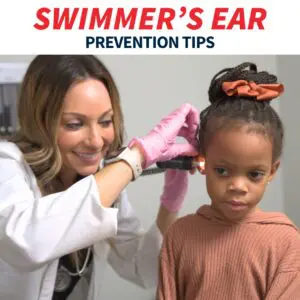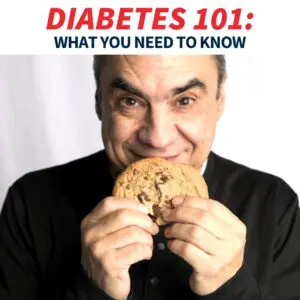Pediatric Cold & Flu Treatments
 Cold and flu season is upon us, and if you have children, you may be wondering how you can be prepared in the event they get sick. We always want to make sure our children are happy and healthy, but when they aren’t feeling well, the best thing we can do is help manage their symptoms, keeping them as comfortable as possible. There are a variety of safe, effective treatments you can do at home if your child is suffering from a cold or the flu.
Cold and flu season is upon us, and if you have children, you may be wondering how you can be prepared in the event they get sick. We always want to make sure our children are happy and healthy, but when they aren’t feeling well, the best thing we can do is help manage their symptoms, keeping them as comfortable as possible. There are a variety of safe, effective treatments you can do at home if your child is suffering from a cold or the flu.
Medication Options
Because the cold and flu are caused by viruses, there is no medication that will be able to cure the illness. Antibiotic treatments are only effective against bacterial infections, so your doctor will most likely be unable to provide a prescription unless there is another issue present. Of course, there are medications you can use to help alleviate your child’s symptoms:
- Cough Drops or Throat Lozenges: For children 4 years of age or older, you may provide your child with a cough drop or lozenge. This will help temporarily relieve a sore throat and cough. Be sure to keep an eye on your child to prevent choking, and do not provide more cough drops than instructed on the package.
- Mentholated Rubs: A mentholated rub can help soothe a cough, helping your child get the sleep he or she needs. Apply the rub to the chest and throat area where the child will be able to breathe in the medicated air. Most options are for ages 2 and up, but there are some that are made for younger children that can be found in your store’s baby aisle. For younger children, these rubs can also be applied to the bottoms of the feet.
- Ibuprofen or Acetaminophen: For fever or body aches, use either acetaminophen or ibuprofen – never give a child aspirin. Before giving either medication to a child 2 years or younger, discuss with your physician to determine the correct dosage. Ibuprofen should not be used for children under 6 months of age, or those who are dehydrated or vomiting. If your child has a fever and is 3 months or younger, contact your physician right away.
In some cases, other medication options can be used, but only if your child is older, or the pediatrician has provided a prescription or recommendation:
- Over-the-counter Cough & Cold Medicine: Do not use any cough or cold medication for children under the age of 4 as there is a risk of serious side effects. In fact, many of these medications have been shown to be ineffective for children under the age of 6. If you do use one of these, be sure to check if they have acetaminophen included within the dosage so you avoid giving your child a double dose of medication.
- Antibiotic Prescription: If your child’s doctor has determined an antibiotic treatment is required, make sure they take it exactly as prescribed. Stopping too soon can cause the infection to become worse and spread, even if they are feeling better after a few days. Be sure to provide your child with the instructed milliliter dosage, administered by syringe, cup, or spoon.
Non-Medicated Options
When your child is quite young, safe medication options are fairly limited. However, there are some things you can do to help alleviate symptoms without the use of medicine, or in conjunction with medicated treatments:
- Saline Nose Drops or Spray: Put one to two drops, or one to two sprays, of saline (salt water) into the opening of each nostril. For infants, follow up with a rubber suction bulb to suck out the extra saline and remove clogged mucus, allowing easier breathing. Older babies will most likely fight the bulb, but saline is still effective at loosening stubborn mucus.
- Humidifier: Also referred to as a vaporizer, a cool-mist humidifier in your child’s room helps thin out the mucus of a stuffy nose, making it easier to breathe. Ensure you keep it clean each day to prevent bacteria or mold growth. Avoid hot-water vaporizers as the hot water could result in burns.
- Honey: This can be a great natural cough remedy for children over the age of one (do not use in babies under one as it is unsafe). For children ages 1 to 5, provide half a teaspoon; ages 6 to 11, provide one teaspoon; ages 12 or older, provide two teaspoons. If taking before bed, be sure they brush their teeth after a dose.
Cold & Flu Prevention
Because colds are quite contagious, there’s not much you can do to prevent your child from becoming infected. Encourage proper hygiene and hand-washing, disinfect frequently-used surfaces regularly, teach them to cover their mouth and nose when coughing or sneezing, and remind them not to share drinks or eating utensils with others. For the flu, the best prevention you can provide is the annual flu vaccine. Children over the age of 6 months should receive a yearly vaccination for the best seasonal protection. If your child is younger than 6 months, be sure that all those who are around him or her have received their flu shot for the best protection.
Visiting the Doctor
If your child’s symptoms are not improving or appear to be worsening, it’s best to visit the doctor to determine if another infection in addition to the cold or flu may be present. Don’t wait for an appointment at the pediatrician’s office – bring your child to one of our convenient Midwest Express Clinic locations today. Our experienced, caring staff will provide a comprehensive exam and make safe recommendations on treatments you can provide for your child.
If your child is exhibiting possible symptoms of COVID-19, contact us prior to visiting to determine if extra precautions and testing are required.




